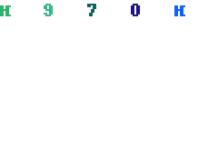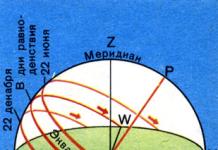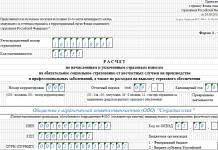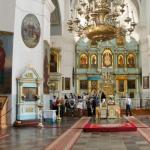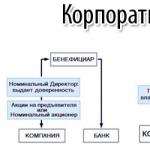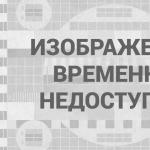Student mobility is an opportunity to spend one or two semesters in another country as a student or intern at a foreign university, without interrupting your studies at St. Petersburg State University. The goal of student mobility programs is the internationalization of higher education and the cultural integration of young people from different countries.
You can take part in student mobility programs in the following forms:
- on your own initiative, having received an invitation from a foreign university;
- within the framework of an interuniversity agreement, by taking part in the annual open competitive selection of St. Petersburg State University;
- within the framework of international academic mobility programs, having received a corresponding grant from the program organizers;
- within the framework of intergovernmental agreements, taking part in the annual open competition of the Ministry of Education and Science of the Russian Federation.
Taking advantage of student mobility, you get an excellent opportunity to get acquainted with the culture and education system of another country, improve your knowledge of foreign languages, make new friends and gain invaluable experience.
Studying at a strong foreign university will be a good addition to your higher education diploma and will certainly increase your competitiveness in the labor market.
Student mobility through inter-university cooperation is organized within the framework of direct bilateral and multilateral agreements between St. Petersburg State University and universities in other countries and involves studying abroad for one or two semesters with the possibility of crediting learning outcomes. The opportunities of this program can be used by students of all educational programs of St. Petersburg State University. In some cases, these agreements directly provide for the possibility of student mobility only for certain educational programs.
Student mobility through the Ministry of Education and Science of the Russian Federation provides the opportunity to undergo an internship (including language training) in foreign universities for a duration of 4 weeks to 10 months within the framework of interstate agreements of the Russian Federation.
St Petersburg University also participates in a number of large international student mobility programs, such as Campus Europae, Erasmus Mundus, FIRST, Santander Universities. These programs provide students with a wide choice of partner universities as well as financial support.
" onclick="window.open(this.href," win2 return false > Print
A student exchange program is a procedure when a student from one university for a certain period has the opportunity to attend classes at another educational institution with which the home university has an agreement. Student exchange can be carried out between universities of the same state or different ones.
Some programs (for example, Work and Travel USA) are designed for the summer period, during which the student does not study, but works with a permit in another country.
Why exchange programs are needed
You should look into a student exchange program abroad if you:
- Ambitious
- Efficient
- Do you want to see the world
- Intend to make a career
- Do you dream of learning something new in your specialty?
- Do you want to improve your knowledge of a foreign language(s)
- Are you interested in and easily adapt to other cultures?
- Communicative
Countries and programs offering student exchange
All European countries are participants in international student exchange. The European Union operates the Erasmus program, in which the first place in the number of students admitted annually is occupied by Germany, Spain and France. Funding is provided by the European Union and the university from which the student came.
Many students study exchange in Germany with the support of DAAD (German Academic Exchange Service). The organization provides financial support. The Moscow representative office of DAAD operates in Russia. The advantage of the program is that students, graduate students, doctors and professors from other countries can receive support within its framework.
AIESEC is an international European student organization that helps everyone find internships abroad. Its members include thousands of universities around the world. AIESEC has a representative office in various cities of Russia.
Those wishing to become exchange students in Japan can count on receiving a scholarship from the Japanese government. For detailed information and submission of documents for participation, please contact the Japanese Embassy in Russia. 
In Korea, foreign exchange students receive scholarships through the Korea Foreign Exchange Student Support Program. The Korean Embassy can provide detailed advice on the possibility of participating in the exchange.
In the USA, you can become a participant in the Global UGRAD program for exchange studies. In addition, for those who dream of visiting America, it makes sense to take part in Work and Travel USA, a program under which students go to work in the United States during the summer. Of the five months, four are reserved for work and one for travel.
There are local organizations that help students go abroad. It is convenient to use the Internet to find them. In addition, information on which programs are most convenient for students of your home university to participate in, and on what grounds, can always be found in the dean’s office of the educational institution.
How to get into the exchange program
There is a competition for participation in student exchange programs. Each state prefers to accept talented and interesting students from another country.
The most common requirements for candidates:

In each individual case, the university or the state (if it is a state program) sets its own conditions regarding the motivation and level of training of exchange participants. Typically, exchange candidates write an essay or other competitive work, undergo an interview, and based on the results of all tests, the host country decides whether it can provide the student with the opportunity to study with them.
What documents are often required to participate in an exchange program?
- Student identification document
- A document confirming study at an accredited university (plus a certificate of academic achievement)
- Certificate of passing an exam on knowledge of a specific foreign language (according to international standards)
- Health certificate
- Visa for host country
How much will exchange training cost?
Most often, when deciding whether to participate in a program, the issue of money is important. For example, student exchange in France receives state financial support, which means that the program participant has every reason to count on a state scholarship.
The issue of student exchange in England is decided at the university level, i.e. each university is free to choose whether it can and wants to accept students from other countries, and on what basis. Certain universities offer scholarships to exchange participants; to receive them, they must win a grant from an English university. In addition, international students receive a work permit (twenty hours a week during the semester and unlimited during the holidays).
Exchange students in Korea and Japan receive government scholarships.
Often exchange participants can receive financial support from government and non-government international organizations specializing in this.
In many programs, students bear the cost of airfare (relocation) to the host country and medical insurance.
What students say
“As part of a Work and Travel USA exchange, I went to work in San Francisco. I liked the city. However, upon arrival I encountered several problems. Some of my luggage got lost during the flight. But this is not the most inconvenient thing. According to the contract with the employer, he was supposed to provide me with housing. For some reason everything fell apart. Thanks to the employee of the company that organized my participation in the program. He found someone who agreed to shelter me in his house. I liked working at the pizzeria; I didn’t experience any language barriers and communicated a lot with the people around me. I learned a lot of cultural experience” - Student from Russia.
“I practiced under an exchange program at a university clinic in Besançon, France. I trained for two weeks in the department of oncology and hematology. Then she practiced in the children's department of oncology and hematology. Participated in daily rounds and examinations of patients along with other students. I managed to work on night duty in an ambulance. I am especially grateful for my practice in the field of psychological assistance to patients. I’m extremely pleased with the trip” - Student at a Russian medical university.
“I studied in Germany with the support of DAAD. The most important thing for participation in the program is to submit all required documents on time and in the correct order. I didn't even have to go through an interview. The scholarship paid (1000 euros) was enough for everything. I am satisfied with my practice in assessing the microclimatic conditions of Kassel. The professor who organized my internship is familiar to me from international seminars in my city. They say that finding a teacher in Germany is difficult. I advise such people to use the search engine that is on the DAAD website. There is all the information: which professor works in which direction. Many people are ready to cooperate with scientists and students from Russia. As a result of such an international project, you can receive a European grant” - Student of a Russian university.
Student exchange through inter-university cooperation
What is student exchange through inter-university cooperation?
Student exchange is a form of organizing student mobility at St. Petersburg State University, implemented within the framework of direct international agreements on cooperation between the University and foreign educational and research institutions.
Basic principles of student exchange:
1) Student exchange does not imply obtaining a higher education diploma from a foreign university or transferring to a foreign university to complete studies. Student exchange is a way to broaden your horizons, gain invaluable experience, as well as an opportunity to improve your academic performance and level of foreign language proficiency.
2) The duration of student exchange programs is from one to two semesters (maximum one academic year). At the end of the exchange, participants receive certificates confirming participation in the student exchange program, indicating the workload completed (courses taken, participation in seminars, papers written, etc.) and grades received.
3) For the duration of the exchange, participants in the student exchange program remain students of St. Petersburg State University (subject to compliance with the relevant requirements of the faculty and the correct execution of documents, including an order to be sent abroad).
4) After returning from abroad, the student exchange participant, on the basis of supporting documents, by decision of the faculty, can be re-credited for the courses taken while studying abroad. The possibility of re-crediting disciplines and recognizing the period of study abroad must be discussed with the dean of the faculty in advance, before leaving abroad.
5) In most cases, the key financial condition of student exchange programs is the exemption of exchange participants from tuition fees at the host university.
Other financial conditions of student exchange programs (scholarship, dormitory accommodation, etc.) depend on the specific international agreement and the general financial situation at the partner university, and may change from year to year.
6) Transportation costs, expenses for obtaining a foreign passport, visa and medical insurance, in most cases, are paid by participants in the student exchange program.
Requirements for candidates to participate in student exchange programs:
1) First-year students of specialist or undergraduate programs are not allowed to participate in student exchange programs; Faculty may impose additional restrictions in this area.
2) Candidates for participation in student exchange programs MUST NOT have academic debt.
3) Candidates must speak a foreign language of the sending country at a level sufficient to attend classes and for everyday life.
If the student exchange program involves studying in English, it is enough to confirm only knowledge of the English language.
The organization of student exchanges within the framework of international agreements of St. Petersburg State University concluded at the university level is carried out department of inter-university cooperation Department of International and Foreign Economic Affairs of St. Petersburg State University.
In order to take part in such an exchange, a student must:
1) get acquainted list of foreign partner universities with whom St. Petersburg State University has entered into direct agreements on student exchange
2) get acquainted with the list of directions, specialties, programs and courses offered by a foreign partner within the framework of the student exchange program by visiting the website of the relevant educational institution, and select one or more partner universities of St. Petersburg State University that is most suitable for the student’s academic profile (current field of study , scientific interests, topic of thesis, research, etc.)
3) contact the foreign department of the faculty or the deputy dean for international relations with a statement of desire to take part in student exchange within the framework of a university-wide international agreement and receive the necessary instructions on the procedure for processing the relevant documents at the faculty
4) provide in department of inter-university cooperation UMD next set of documents:
Application form with motivation letter in Russian [ questionnaire]
Confirmation of foreign language proficiency
Proficiency in a foreign language can be confirmed by a foreign language teacher indicating the corresponding levels according to the system EUROPEANLEVELS –SELFASSESSMENTGRID. In this case, the confirmation letter is executed in two versions - in Russian and foreign languages, certified by the signature of the teacher and the seal of the faculty.
If proficiency in a foreign language is confirmed by an official certificate or test result, translation into Russian is not required.
5) it may be necessary to provide additional documents to the receiving party. You will receive information about this from an employee of the department of inter-university cooperation
If your application is approved by the partner university, an official invitation will be issued for you. An employee of the department of inter-university cooperation will notify you of the need to pick up the invitation.
Having an invitation in hand, contact the consulate to obtain a visa, as well as the faculty to issue an order to be sent abroad.
After returning from abroad, do not forget to inform the faculty about your return in the prescribed manner!
for the spring semester of the current academic year - until October 15 of the current academic year
For all questions related to the organization of student exchange, please contact:
Department of Inter-University Cooperation UMD St. Petersburg State University
Outbound Mobility Manager – Selyutin Maximillian Olegovich
Tel/fax: (8 Email : *****@
Reception of visitors: Mon – from 10-00 to 12-00
Tue – from 14-00 to 16-00
- The university cooperates with a number of foreign universities around the world:
- Italy Rome),
- Germany Berlin),
- France (Nantes),
- Estonia (Tartu),
- Belarus (Vitebsk),
- Uzbekistan (Samarkand),
- Ukraine (Kharkov),
- Kazakhstan (Almaty, Semipalatinsk)
Nord-Baltika NW - Russian project
- Under the program “Nord-Baltic NW - Russian Project” for postgraduate education in the field of veterinary medicine, the academy cooperates with the following countries:
- Scandinavian countries: The Norwegian school of veterinary science, The Swedish university of agricultural science, University of Helsinki, faculty of veterinary medicine
- Baltics: Estonian agricultural university, Institute of veterinary medicine and animal sciences, Estonian university of life sciences, Latvia university of agricultural, Lithuanian veterinary academy
- And also: Faculty of Veterinary Medicine of the Free University of Berlin, Experimental Institute of Animal Prevention of the Regions of Lazio and Tuscany (Italy) - scientific work, State Veterinary University of Nantes (France) - internship for students and graduate students.
University of Architecture and Civil Engineering (SPbGASU)
University of Architecture, Construction and Geodesy (Bulgaria, Sofia)
Students undergo geodetic practice in Bulgaria: lay theodolite tunnels, conduct reconnaissance (inspection of the area), field tracing, depict the terrain on the plan, etc.
An interesting cultural program is provided, which includes visits to the cities of Bulgaria (Varna, Plovdiv, Sofia).
Higher Technical School (Germany, Kaiserslautern)
Construction and architectural practice for students.
For students of construction specialties, internships are organized with visits to construction sites, design and construction companies, new constructed objects (bridges, residential buildings, laboratories, etc.).
Master classes are organized for architectural students. Russian and German students are given a specific topic relating to the most pressing issues in architecture. Over the course of five days, students jointly develop projects and then defend them during a test lesson.
In addition, during the internship, students of all directions can get acquainted with studying in Germany using the example of the Kaiserslautern Higher Technical School. Visits to museums, exhibitions, and walking tours are organized for them.
Languages spoken: German, English.
Krakow Polytechnic named after. Tadeusha Kosciuszki (Poland)
In Poland, construction practice is conducted for students of the Russian Federation with visits to various objects, construction sites, construction and design firms in Krakow.
During this time, students can further get acquainted with studying in Poland using the example of the Krakow Polytechnic. Tadeusz Kosciuszki.
An extensive cultural program is also provided: a visit to the former salt mines in Wieliczka, a trip to Zakopane (ski resort), walking tours of Krakow with a visit to the royal Wawel Castle.
Languages of communication: English, Polish.
St. Petersburg University of Architecture and Civil Engineering also cooperates with Beijing University of Engineering and Architecture(China).
University of Granada (Spain)
Students choose 5 subjects in Spanish (a list can be obtained from the International Department) and take them during the semester. Re-crediting of courses is carried out subject to their passing in the examination session at the end of the main course of study.
- Registration for the program:
- Autumn semester: until July 1
- Spring semester: until November 1
- Autumn semester: from October 1 to January 27 (exams from December 4 to February 17)
- Spring semester: from February 19 to June 9 (exams from 11.06 to 07.06)
University of Zagreb (Croatia)
Exchange program with the Faculty of Philosophy of the University of Zagreb
Students usually take classes in Croatian, but you can indicate in the application form and then attend (subject to availability) classes in other foreign languages (for example, English), or disciplines in Croatian.
- Registration for the semester exchange program:
- Autumn semester: until May 1
- Short-term exchange program (1 month):
- from October 1 to November 1
- from April 1 to May 1
Participants: 3rd-4th year NIUC students of all specialties.
Olomouc University (Czech Republic)
Exchange program with the Faculty of Philosophy of the University of Olomouc.
Nevsky Institute students studying Czech can choose disciplines in Czech. If there are free places in groups, you can attend other disciplines (for example, English and other languages), as well as courses taught in English.
According to the agreement between NIUC and the Faculty of Philosophy of the OU, the exchange program takes place only in the spring semester from mid-February to May 30.
Short-term exchange program for 1 month: mid-March – mid-April.
Participants: 3rd-4th year NIUC students of all specialties.
University of Oklahoma (USA)
Exchange program with the University of Oklahoma
Students choose 4 disciplines that are as close as possible to the course of study at NIUC.
- Registration for the program:
- Autumn semester: until March 1
- Spring semester: until September 20
- Duration of semesters (program implementation period):
- Autumn semester: last week of August to last week of December
- Spring semester: from the second week of January to the second week of May
Participants: 4th year NIUC students of all specialties (in rare cases - 3rd year students, 2nd semester).
University of Durham (UK)
Exchange program with Durham University
Department of Russian Language School of Modern Languages and Cultures
Students attend up to 6-7 subjects per week (the list is updated every year; you can choose courses directly at the Russian language department).
- Registration for the program:
- Autumn semester: until May 1
- Spring semester: until October 1
- Duration of semesters:
- Autumn semester: from October 1 to December 20
- Spring semester: 2nd week of January - mid-April
Participants: 3rd-4th year students of the National Research Nuclear University, majoring in Translation and Translation Studies.
University in Groningen (Holland)
Exchange program with Hanse University in Groningen (Holland)
School of Communications and Mass Media
- Registration for the program:
- Autumn semester: until February 1
- Spring semester: until September 15
- Duration of semesters:
- Autumn semester: 1st Monday of September - end of January
- Spring semester: 2nd Monday of February - mid-July
Participants: 3rd and 4th year students of the National Research Nuclear University, majoring in “Public Relations”
Medical Academy named after. I.I. Mechnikov (SPbSMA)
Magdeburg medical faculty named after Otto von Guericke, Germany
In 2009, an agreement was signed on the exchange of students at the undergraduate level.
Tubingen medical faculty named after Eberhard Karls, Germany
In 2010, a bilateral exchange of senior students is planned.
University of Genoa (Italy)
The exchange program has been in effect since 2006. Participants spend the spring semester in Italy, the fall semester in Russia. Duration: from one to three months. Students study at a partner university for one semester with transfer of study results. Teachers give lectures on individual courses. Working languages: English, Russian.
Participants: students and teachers of MIEP and the University of Genoa).
Eurasian National University named after. L.N. Gumileva (Kazakhstan, Astana)
The exchange program has been in effect since 2007. Duration: 1-2 weeks (short-term internships).
Participants: teachers and administration of MIEP and teachers and administration of the Eurasian National University.
"International Management"
A joint program with the Faculty of Business Administration of the Fulda University of Applied Sciences has been operating since 2009. Duration: one semester in Germany. Students are engaged in a comparative study of small and medium-sized businesses in two countries.
Participants: students and teachers of the Faculty of Economics, Faculty of Business Communications MIEP and Faculty of Business Administration of the Fulda University of Applied Sciences.
Social Work Internship Program
The exchange program together with the Faculty of Social Work of the Fulda University of Applied Sciences has been operating since 2009. Duration: one semester (August-December) in Germany. Students study at a partner university with their learning results transferred. Teachers give lectures on individual courses. Working language: English.
Participants: students and teachers of the Faculty of Psychology, MIEP and the Faculty of Social Work, University of Applied Sciences, Fulda
Internship program for designers
Short-term internships in Florence (Italy) together with the Russian Academy of Arts have been operating since 2010. Duration: from one to three months.
Participants: students of the Faculty of DiPI MIEP.
Northwestern Correspondence Technical University (NWTU)
Cooperation of North-West Technical University with universities in Scandinavia and the Baltic states
In accordance with the concluded agreements, NWTU students undergo short-term (1-2 weeks) educational internships, semester-long training in their specialty, and also undertake study tours.
- Organizers:
- Northwestern Correspondence Technical University,
- University of Eastern Finland,
- North-Karelia university of applied sciences (Polytechnic), Joensuu, Finland
- Kajaani university of applied sciences (Polytechnic), Finland
- Electrical Engineering Gymnasium NTI Gothenburg, Sweden,
- Maritime Academy of Szczecin, Poland
- West Pomeranian University of Technology, Szczecin, Poland (West Pomeranian university of technology),
- Estonian university of life sciences.
- Over the past year, within the framework of existing international treaties, groups and individual students and graduate students underwent internships:
- in Germany (Dusseldorf, Ruhr University, Koch-Technik company),
- in France (GEM Mining School, Alès),
- in Lithuania (Klaipeda).
In 2010, new agreements on academic and scientific cooperation were concluded with universities and institutes in Korea, China, Denmark, Norway and with the French company Air Liquid.
Russian State Pedagogical University
named after A. I. Herzen (Russian State Pedagogical University named after A. I. Herzen)
In accordance with the concluded agreements, students of the Russian State Pedagogical University named after. A.I. Herzen undergo short-term (1-2 weeks) educational internships, semester-long training in various specialties, and also undergo teaching internships.
- Foreign partner universities:
- Brussels Institute of Translators of the Higher School of Brussels (Brussels, Belgium),
- Secondary school at the Russian Embassy in Hungary (Budapest, Hungary),
- University of Potsdam (Potsdam, Germany),
- University of Oldenburg (Oldenburg, Germany),
- University of Konstanz (Germany),
- University named after Humboldt (Berlin, Germany),
- Gongju National University (Gongju, Korea),
- Chung-Ang University (Seoul, Korea),
- Kimyung University (Daegu, Korea),
- Kookmin University (Seoul, Korea),
- Kyungpook University (Daegu, Korea),
- Geological Survey of Norway (Trondheim, Norway),
- University of Rzeszow (Rzeszow, Poland),
- University of Opole (Opole, Poland),
- University of Zielona Gora (Zielona Gora, Poland),
- University of Northern Iowa (Cedar Falls, USA),
- University of Joensuu (Joensuu, Finland),
- University of Jyvaskyla (Jyvaskyla, Finland),
- University of Turku (Turku, Finland),
- University of Lapland (Rovaniemi, Finland),
- University of Oulu (Oulu, Finland),
- Finnish-Russian Society for the Study of Social Welfare and Health in Universities of Applied Sciences (Finland),
- University Paris IV-Sorbonne (Paris, France),
- Secondary school at the Russian Embassy in the Czech Republic (Prague, Czech Republic),
- University of Geneva (Geneva, Switzerland),
- Kansai Gai-dai University (Osaka, Japan).
University of Low Temperature and Food Technologies (SPbGUNiPT)
Russian-Finnish program “First”
As part of the student exchange program, university students study at foreign universities, conduct research on the topics of their final qualifying works, and also undergo annual training in Finland under an academic cooperation agreement, etc.
- Organizers:
- SPbGUNIPT
- Universities of Applied Sciences in Lahti and Oulu (Finland)
- Oulu Vocational Institute
- Agricultural University of Nanjing (PRC)
The university practices short-term training of students in higher educational institutions in Denmark, China, Poland, Finland, Germany, Sweden and other countries; participation in international student conferences and summer schools.
Polytechnic University (SPbSPU)
SPbSPU implements a whole range of academic exchange programs. The duration of these programs is 3–4 months (semester) and they are conducted between the Polytechnic University and its partner universities (between faculties and departments of universities).
A student can find out about the availability of such programs and the possibility of participating in them in the Academic Mobility Department of St. Petersburg State Polytechnic University or in the Resource Center for Providing International Scientific and Educational Activities of St. Petersburg State Polytechnic University, which advises students on international educational programs.
Internships at universities in Finland.
Students of the Polytechnic University undergo a 4-month internship at universities in Finland. Teachers from partner universities give lectures to students in Russian and Finnish.
- Organizers:
- SPbSPU,
- University of Tampere,
- Saimaa University of Applied Sciences,
- Kymenlaakso University of Applied Sciences,
- Haag-Helia University of Applied Sciences.
Helpful information?
Currently, almost all government agencies provide students with very broad opportunities to participate in international educational programs conducted jointly with European and North American partners - organizations, foundations, and educational institutions themselves.
The projects that are most actively developing in Russia today are Erasmus Mundus, TEMPUS-TACIS, Baltic Sea Region, British Council programs. A distinctive feature of the activities of universities in St. Petersburg is especially close cooperation with educational institutions of the Baltic countries. In addition, it is worth noting the extremely active interaction with German universities.
The undisputed leader in the number of diverse cooperation programs with foreign universities is St. Petersburg State University. As part of the Erasmus Mundus project, funded by the European Union, students have the opportunity to undertake internships at the following European universities:
- University of Algarve, Portugal
- University of Deusto, Spain
- University of Latvia, Latvia
- University of Turku, Finland
- University of Bologna, Italy
- Humboldt University Berlin, Germany
- University of Gottingen, Germany
- University of Leuven, Belgium
- Masaryk University, Czech Republic
- Pultusk Academy of Humanities, Poland
In addition, students can take part in competitions to receive scholarship support. An example is the annual program of the University of Kiel, aimed at students from universities in the Baltic region. The partners of St. Petersburg State University with which “direct” student exchange agreements have been concluded include the following educational institutions:
- University of Salzburg
- Free University of Brussels (Universite Libre de Bruxelles)
- University of Antwerp
- University of Hamburg
- Ruprecht-Karls University of Heidelberg
- Dresden Technical University (Technische Universitaet Dresden)
- University of Leipzig
- Technical University of Munich
- University of Paderborn
- University of Potsdam
- University of Greifswald (Ernst-Moritz-Arndt Universitaet Greifswald)
- University of Erfurt
- University of Amsterdam
- University of Tromsoe, Norway
- University of Copenhagen
- University of Warsaw
- Jagiellonian University, Krakow
- The State University of New-York at Stony Brook
- Vaasa University, Finland
- University of Turku
- University of Tampere
- University of Zagreb, Croatia
- Charles University in Prague
- University of Lausanne
- Lund University, Sweden
- University of Tartu, Estonia
This list includes only part of the university’s international partners. Various agreements on academic cooperation have been concluded with many other educational institutions in Europe and America. It is worth noting that agreements on “double diploma” have been concluded with some universities. An example of such cooperation is an agreement with the Vienna University of Economics and Business.
St. Petersburg State Agrarian University, within the framework of the Erasmus Mundus project, cooperates with 8 European universities:
- University of Hohenheim, Germany
- University of Natural Resources and Applied Sciences, Vienna
- Czech University of Life Sciences, Prague
- University of Tübingen, Germany
- University of Udine, Italy
- Wageningen University, The Netherlands
- Warsaw Agricultural University
St. Petersburg State University of Architecture and Civil Engineering carries out student exchange with universities in Germany (Higher Technical Schools in Kaiserslautern and Oldenburg), Poland (Czestochowa University of Technology, Krakow University of Technology named after Tadeusz Kosciuszka) and Bulgaria (University of Architecture, Construction and Geodesy in Sofia ). Summer international courses are held in Finland (the cities of Mikkeli, Lappeeranta, Kumenlaakso). The Double Degree Program (“double diploma”) has been agreed upon with Finnish partners - Saimaa University of Applied Sciences (Lappeenranta) and Mikkeli University of Applied Sciences.
St. Petersburg State Medical University named after. Academician I.P. Pavlova offers its students the opportunity to participate in additional education programs organized through the Ford Grant. In certain areas of study, “dual degree” agreements have been signed with Kingston University of London.
The St. Petersburg State Academy of Veterinary Medicine organizes student internships at the universities of Berlin and Tartu (Estonia). Within the framework of the “Nord-Baltic - NW - Russian Project” (joint postgraduate education), cooperation is carried out with the following universities:
- The Norwegian School of Veterinary Science, NVH
- The Swedish University of Agricultural Science, SLU
- University of Helsinki, Faculty of Veterinary Medicine
- Estonian Agricultural University
- Latvia University of Agricultural
- Lithuanian Veterinary Academy
Russian State Pedagogical University named after. A.I. Herzen cooperates with more than 100 foreign universities. Various agreements provide for student exchanges, internships, and the organization of cultural and educational programs. Many projects have been implemented in cooperation with well-known international organizations and foundations: UNESCO, Soros Foundation, British Council, Goethe Institute, Carnegie Foundation, Consortium of American Universities. University named after A.I. Herzen participates in the TEMPUS-TASIS program.
The St. Petersburg State University of Economics and Finance has various partnership agreements with 93 foreign universities, including a “double degree” agreement with the Hagen Correspondence University (Germany). SPbGUEF participates in the ERASMUS MUNDUS, TACIS, TEMPUS projects. Student exchange is carried out within the framework of cooperation with agencies such as DAAD, Edufrance, CIMO.
St. Petersburg State University of Engineering and Economics (INZHEKON) organizes on-site summer schools and educational internships in collaboration with universities in Italy and Greece. The bachelor's double degree program is provided for by agreements with the University of Applied Sciences in Wildau (Germany) and the École Supérieure de Troyes (France).
Students of the St. Petersburg State University of Service and Economics have the opportunity to attend summer schools in Hungary and Finland, receive a second diploma and do an internship at the University of Applied Sciences in Mikkeli (Finland). Exchange programs are implemented within the framework of the Erasmus Mundus, Baltic Sea Region, Tempus projects. In addition, there is a Finnish-Russian program; the main partners of St. Petersburg State University of Economics and Economics are the universities of applied sciences. Kokkola and Espoo (Laureya), University of Saimaa.
St. Petersburg State Polytechnic University cooperates with many foreign universities. Number of SPbSPU partners in some countries:
- Germany - 33. Including - Berlin, Munich and Dresden Technical Universities, Hamburg University of Technology
- Finland - 19. Examples - Abo Academy University, Turku, Aalto University, Helsinki
- France - 16 (design school, Nantes, National Higher School of Arts and Crafts (ENSAM), Cluny and others)
- Austria - 7 (including Vienna University of Technology)
- Netherlands - 6 (including University of Amsterdam)
- Sweden - 5 (including Royal Institute of Technology, Stockholm)
- Italy - 4. Example - University of Milan
- Spain - 4 (including Polytechnic University of Madrid)
- Switzerland - 3 (including Institute of Business and Management, Geneva)
- UK - 2 (City University London and Imperial College, London)
SPbSPU actively participates in the EU Framework Program (FP5-FP7), TEMPUS, TACIS-CBC, ENPI, NCO-COPERNICUS, NATO-SFP, INTAS and other programs. In various specialties you can obtain a second diploma - a bachelor's degree (University of Alcala de Henares (Madrid), Mikkeli University of Applied Sciences and Saimaa University of Applied Sciences) or a master's degree (City University of London, Brandenburg Technical University, Lappenranta University of Technology).
St. Petersburg State University of Information Technologies, Mechanics and Optics is a participant in the Baltic Sea Region University Network, Erasmus Mundus, exchange programs funded by the Center for International Mobility and DAAD.
St. Petersburg State Electrotechnical University “LETI” has cooperation agreements with universities in the USA (4, including the Massachusetts Institute of Technology and Stanford University), Germany (14), Great Britain (6), Italy (5), Finland (5) , Sweden (2), Finland (5), Poland (6), Austria (2), Czech Republic (2), the Netherlands, Denmark. Scholarships and grants are provided through the Visby (Sweden) and Yggdrasil (Norway) programs.
St. Petersburg State University of Telecommunications named after. prof. M.A. Bonch-Bruevich organizes internships in the training centers of many well-known companies - Siemens AG, Nokia, Alcatel-Lucent, AT&T, FINNET, NEC, Teletechno OY.
Universities with which cooperation programs are being implemented: University of Warwick (England), Central Michigan University (USA), Technical University of Munich, Danish Technical University (DTU), Lapeenranta University of Technology, University of Verona, National Polytechnic Institute (Grenoble, France). Agreements on educational exchange were reached with 2 schools in Sweden, the University of Lappenranta, the University of Helsinki; about “double diploma” - with the Higher Special Education School of Deutsche Telekom (Leipzig).
St. Petersburg State Transport University participates in the Tempus project. Summer schools are organized jointly with Emory University (USA), double degree programs (bachelor's degree) - with the Stralsund University of Applied Sciences (Germany) and the University of Saimaa.
Partners with whom internships or student exchanges have been agreed upon:
- Dresden Technical University
- Universities of applied sciences in Wismar and Augsburg (Germany)
- Saimaa and other universities of applied sciences - Mikkeli, Kymmenlakso and Häme (Finland)
- Higher Transport School named after Todor Kableshkov (Bulgaria)
- Durham University (UK)
St. Petersburg State University of Technology and Design cooperates with ENSAIT (National Higher School of Industrial Arts and Textiles in Roubaix, France - “International Semester” exchange), the Estonian Academy of Arts (scholarships, internships), Finnish universities (FIRST exchange program), educational institutions in Germany (second diploma - bachelor's degree), Italy and Poland (internship). Summer courses are conducted jointly with the University of Glyndore (Wrexham, England) and the Free University of Bozen-Bolzano.
Baltic State Technical University VOENMEH named after. D.F. Ustinova, St. Petersburg, within the framework of the Russian-Norwegian MBAE (Master of Administration and Engineering) program, collaborates with the university in Bude (studying in Norway, European Master's degree).
Russian State Hydrometeorological University, St. Petersburg cooperates with universities in Germany, Finland, Spain, Italy, Great Britain, Portugal, Denmark, Norway, Sweden and Poland. Exchanges and internships are carried out within the framework of the programs of the European Union, UNESCO, the Nordic Council of Ministers, TACIS, TEMPUS.
St. Petersburg State Technological University of Plant Polymers organizes internships in Western companies (for example, Finnish Metso Automation), semester student exchange (Finnish universities in Mikkeli and Seinäjoki, Saimaa University of Applied Sciences). An example of the implementation of “double degree” programs is an agreement with the Lappeenranta University of Technology.
St. Petersburg State Technological Institute (Technical University) organizes an exchange with the University. Paul Sabatier (Toulouse), Abo Akademi University (Turku), Royal Institute of Technology (Stockholm), Cyprus Institute of Technology, Technical Universities of Berlin and Dresden, Technical Institute of Karlsruhe. Agreements on “double diploma” have been signed with the French Ecole des Mines Alès and the University of Du Maine (Leman).
The positive aspects of international interuniversity cooperation are quite obvious - increasing the level of student training, the emergence of additional employment prospects (including in Western companies that organize internships), and obtaining “double” diplomas.
The negative side of the process is noticeable on a national scale - the problem is that as a result of the implementation of projects, additional “intellectual emigration” occurs from our country.
Alexander Mitin


